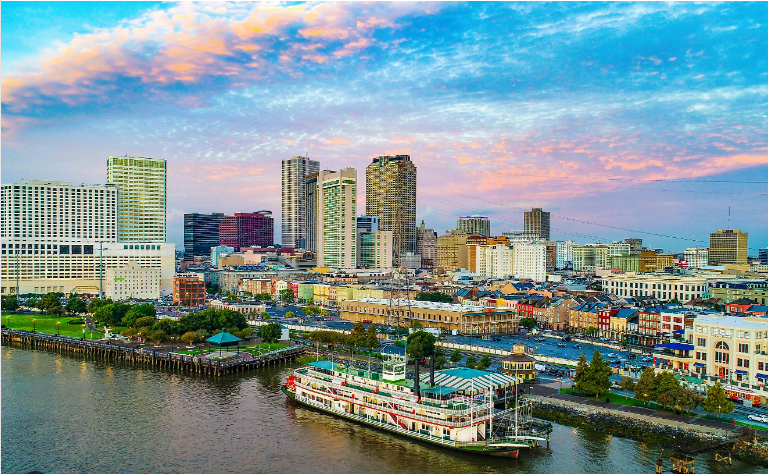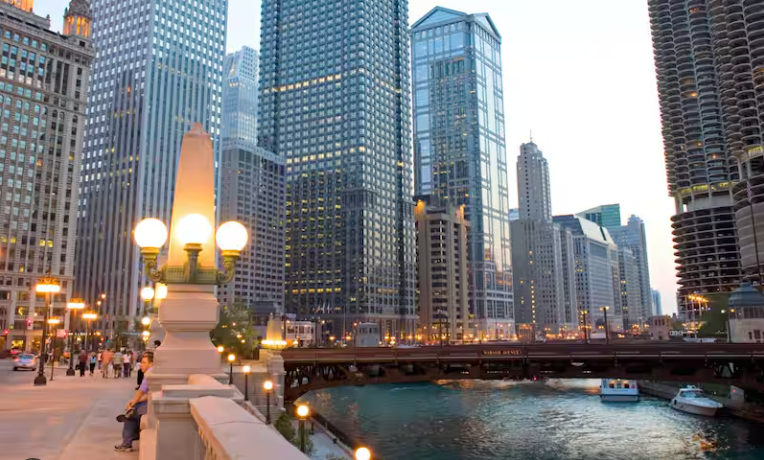Retirement is a milestone many look forward to—a time to relax, explore new hobbies, and enjoy the fruits of years of labor. However, where one chooses to retire can significantly impact their golden years. Factors like cost of living, healthcare access, climate, and taxes can greatly influence retirees’ quality of life. Among the plethora of choices across the United States, some states present unique challenges for those seeking to settle down post-career. Let’s delve into the top ten toughest states for retirees, each offering its own set of hurdles and considerations.
Alaska

One might assume that Alaska’s harsh weather is the sole reason it poses challenges for retirees, but that’s just scratching the surface. The state’s remote location adds another layer of difficulty, making it arduous to visit family and driving up the costs of essential goods. Unless your family resides in Alaska too, connecting with them often entails enduring long, expensive flights.
Given Alaska’s isolation, prices for everyday items like bleach, coffee creamer, bell peppers, and coffee soar to three or four times their usual rates compared to the lower 48 states, as noted by Eat This, Not That! And then there’s the winter. According to Travel Alaska, temperatures can plummet below -30°F, adding another hurdle for retirees to contend with.
Hawaii

Hawaii presents a contrasting scenario on the flip side of the coin. On one hand, it boasts a tropical paradise, with retirees undoubtedly relishing its breathtaking scenery and delightful weather. However, akin to Alaska, it sits far removed from the mainland, resulting in steep prices for basic household goods and groceries.
In fact, according to Kiplinger, the cost of living in Hawaii is a staggering 87% higher than the national average. Additionally, visiting loved ones likely entails significant travel expenses. Despite this, the source notes that healthcare costs in Hawaii are 11.4% below the national average. Nevertheless, for retirees on a tight budget, Hawaii proves to be a challenging state to navigate.
Wisconsin

As one might expect, Wisconsin experiences harsh winters. The Wausau Daily Herald reports that winter temperatures plummet below -30°F, excluding wind chill. Not to mention the significant snowfall; according to Best Places, the state receives an average of 47.6 inches of snow, far surpassing the national average of 27.8 inches.
This translates to ample time spent shoveling snow from sidewalks and driveways. Moreover, Kiplinger notes that Wisconsin taxes distributions from IRAs and 401(k) plans, along with income from pensions and annuities. Additionally, the state ranks sixth highest in property taxes nationwide, according to the same source.
Louisiana

While you won’t face freezing temperatures in Louisiana, you might find yourself battling the heat. According to WeatherSpark, summers in the state are characterized by long, hot, and oppressive conditions. The comfort level is described as muggy, oppressive, or downright miserable for approximately six months of the year. Moreover, relying on air conditioning to escape the heat won’t come cheap. Louisiana was once renowned for its low electric bills, but The Advocate reports that electricity costs are projected to increase by 40% over the next decade. This anticipated rise will put a strain on retirees managing a tight budget.
Unfortunately, Louisiana doesn’t fare well in terms of healthcare either. Yahoo highlights that residents can expect to pay some of the highest monthly premiums for insurance, while healthcare access and outcomes rank below average. This combination of factors makes Louisiana a challenging state for retirees, particularly those seeking relief from both the heat and financial pressures.
Idaho

You might have been under the impression that Idaho is a budget-friendly option for retirement. While the state is indeed known for its low taxes, the current housing market dynamics paint a different picture, making it a costly destination to relocate. As reported by FOX6 News, Moody’s Analytics identifies four of the top 15 overvalued housing markets in Idaho.
The numbers are stark: homes are inflated by 73% in Boise, 56% in Coeur d’Alene, and 49% in Idaho Falls and Pocatello. This reality prompts a reaction of “ouch.” Patrick Malone, president of Idaho Realtors, emphasized to the Idaho State Journal that “There are no affordable houses in Idaho.” Unless you’re prepared to handle steep home prices, it might be wise to explore alternative retirement locations.
California

At first glance, California may appear to be an idyllic retirement destination. With its warm, sunny weather and an abundance of beaches and wineries, it holds considerable allure. However, it ranks among the most expensive places to reside in the country. As noted by MoneyWise, the cost of living in California stands at a staggering 52% above the national average.
Delving deeper, we encounter the financial challenges that retirees in California must navigate. The American Petroleum Institute highlights that the state boasts the nation’s highest gas tax, while Zillow reports a typical home value of $800,172. Furthermore, there’s the ever-present specter of natural disasters. California contends with wildfires, earthquakes, and droughts, factors that retirees must take into consideration when planning their golden years in the Golden State.
Illinois

Even though Illinois “doesn’t tax distributions from 401(k) plans, IRAs, or pensions,” as reported by AARP, affordability remains a concern for retirees. MoneyWise points out that property taxes in Illinois are nearly triple those in neighboring Indiana, contributing to financial strain. Additionally, sales taxes in the state are notable for their high rates.
Furthermore, akin to Wisconsin, Illinois winters can be harsh. Chicago, in particular, grapples with biting winds due to its location on Lake Michigan. According to Choose Chicago, the city experiences an average annual snowfall of 37 inches. Consequently, retirees must navigate icy roads and contend with the chore of shoveling snowy driveways.
Washington

Whether you’re contemplating Western or Eastern Washington, it’s essential to consider the state’s weather conditions, which can significantly impact retirees. The western region is often characterized by rain, making it less than ideal for those who prefer drier climates. For instance, Seattle sees an average of 152 rainy days per year, as reported by The Weather Channel.
Conversely, the eastern part of the state experiences cold and snowy winters. Take Spokane, for example, which receives an average annual snowfall of 44 inches, according to Visit Spokane. Additionally, Washington’s cost of living is notable. Yahoo highlights that housing, healthcare, and sales taxes are high in the state. Furthermore, the American Petroleum Institute notes a significant gas tax, adding to the financial considerations for retirees.
Connecticut

“Connecticut ranks as the fifth-highest-taxed state in the nation,” reports Retirement Living, presenting a significant financial challenge for retirees. Particularly burdensome is the taxation of Social Security benefits, with some exceptions. Moreover, Kiplinger notes that Connecticut boasts the third-highest property taxes in the United States.
In addition to these taxes, the state levies an estate tax and a gift tax, further adding to the financial strain on retirees, according to the same source. On a positive note, PRB reveals that 18.2% of Connecticut’s population is 65 or older, indicating a sizable senior community. However, despite this demographic trend, making Connecticut a viable retirement destination requires a substantial nest egg due to its high cost of living and tax burden.
New York

Retiring in New York can offer ample entertainment and opportunities, but it’s a financial challenge for those without substantial resources. Despite certain tax benefits for retirees, Kiplinger notes that property and sales taxes can be significant burdens. For instance, the combined sales tax in New York can climb to 8.52%.
Moreover, should health or mobility issues arise in the future, a sizable nest egg is essential to cover expensive nursing home costs. According to the state’s Department of Financial Services, nursing home expenses can range from $96,360 to $142,350 per year, varying based on location within the state.
